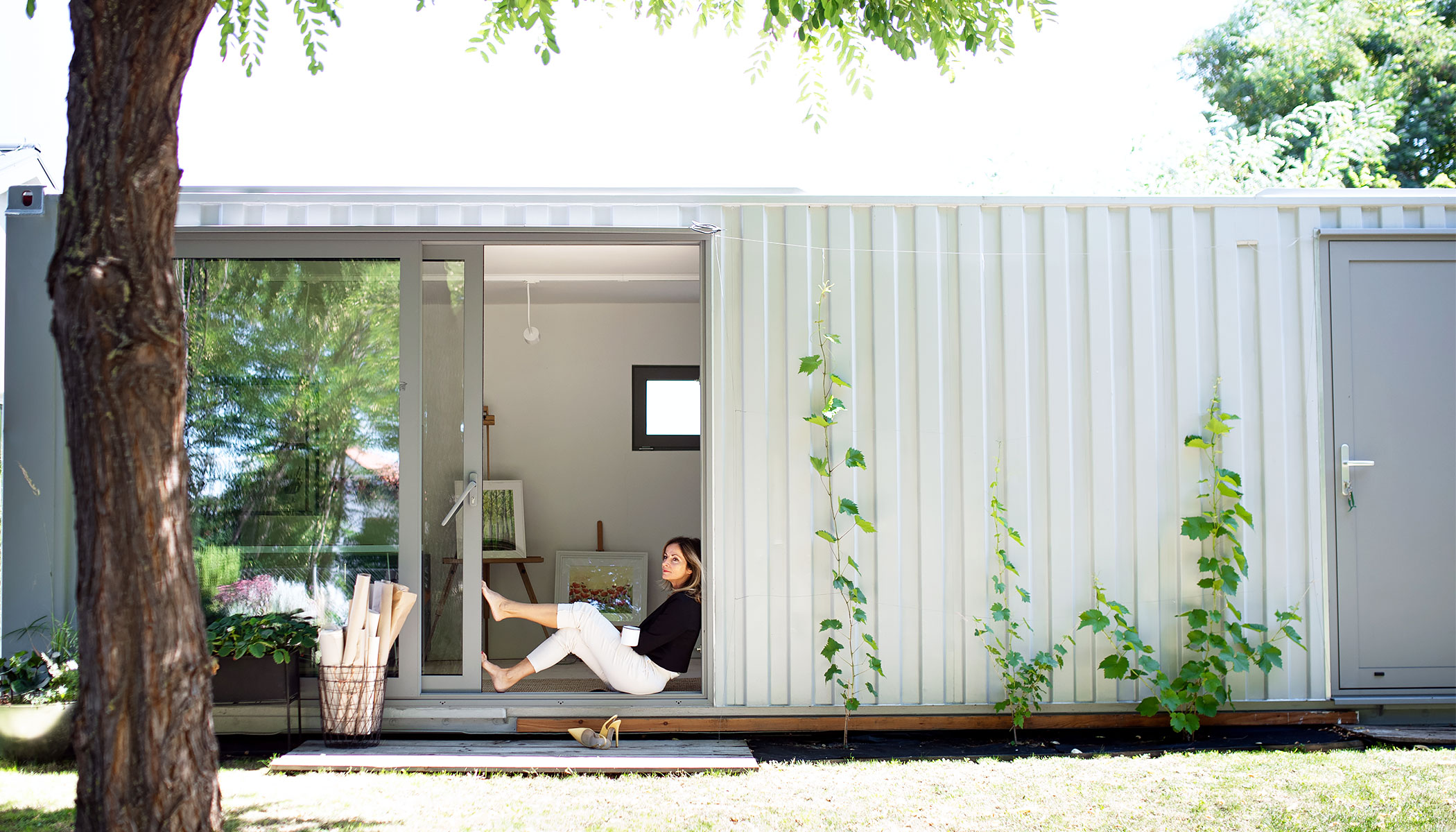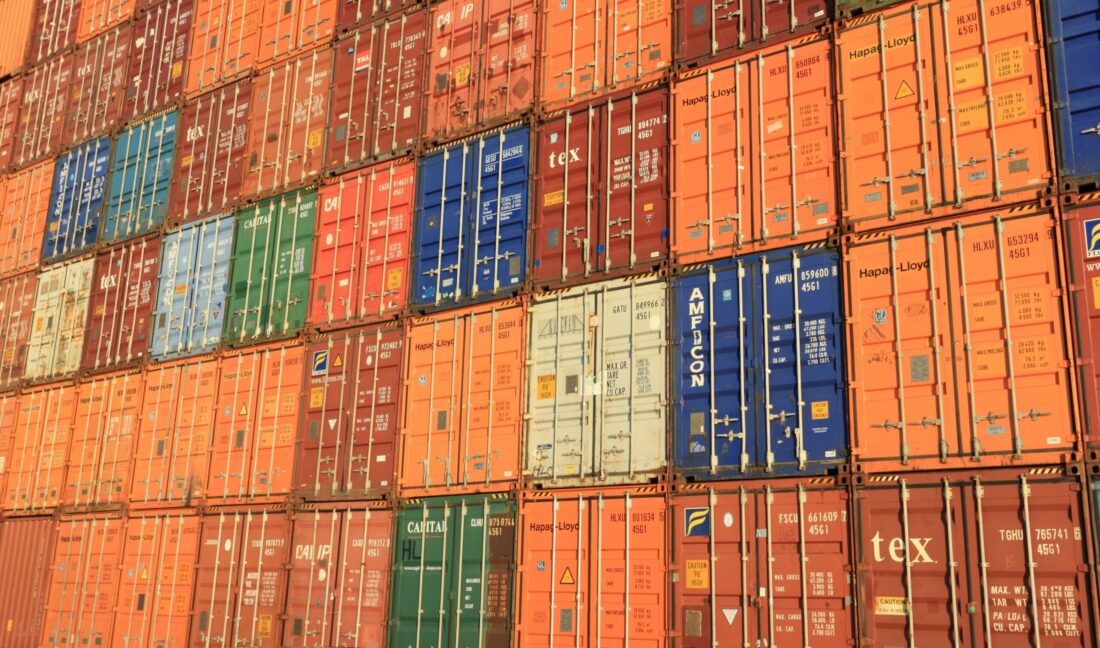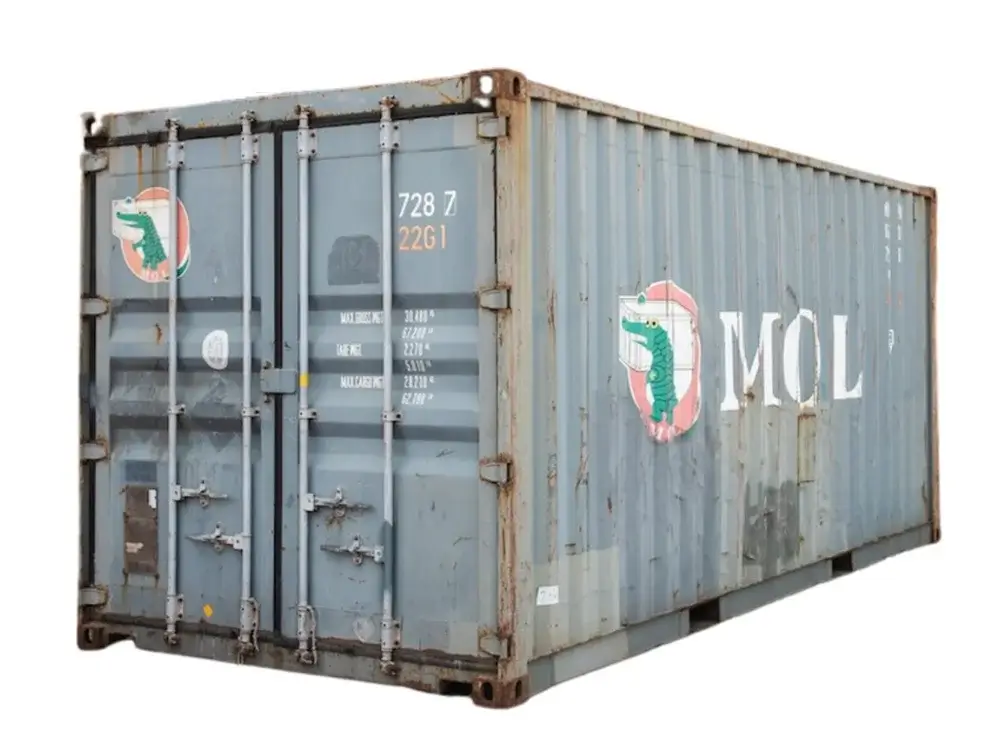Everything You Required to Know Concerning Shipping Containers and Their Practical Applications
Shipping containers have progressed from plain tools for transport to versatile structures with various sensible applications. Their durable style and basic sizing make them ideal for a series of uses past shipping. From cutting-edge real estate remedies to lasting farming, their adaptability is noteworthy. Yet, the possibilities do not finish there. Exploring their various features discloses unusual insights into imaginative services and modern difficulties. What other roles could these containers play in today's world?
The Style and Structure of Shipping Containers

Internally, containers are created to make best use of room, frequently including wood or steel flooring that can sustain substantial weight. Ventilation systems may be included to avoid wetness build-up, which is critical for delicate cargo. Furthermore, enhanced corners enable very easy handling by cranes and forklifts, promoting seamless loading and dumping. This thoughtful design and structure add to the containers' convenience throughout different delivery and storage space applications.
Advantages of Utilizing Shipping Containers
While many transport techniques have their advantages, making use of shipping containers stands apart due to their unrivaled adaptability and efficiency. Shipping containers supply a standard dimension, making them very easy to pile and transfer across various settings of transport, consisting of trains, ships, and trucks. This standardization minimizes filling and dumping times, thus enhancing general productivity.
Shipping containers are constructed from sturdy products, giving durable defense for items during transportation. They are weather-resistant and secure, decreasing the risk of damage from environmental variables or burglary. Furthermore, the modular design of shipping containers permits for simple modification, enabling organizations to adapt them for numerous purposes, such as storage or mobile offices.
Their transportability and cost-effectiveness make delivery containers an eye-catching option for companies looking to improve logistics and supply chain operations. These advantages add to the growing popularity of delivery containers in different markets.
Innovative Real Estate Solutions With Shipping Containers
Ingenious real estate options have emerged as an exciting application of delivery containers, leveraging their fundamental staminas for property usage. These versatile frameworks provide a sustainable alternative to typical building products, typically at a portion of the expense. Engineers and developers have actually transformed containers right into fashionable, useful homes, satisfying diverse way of lives and preferences.

In addition, shipping containers are environmentally pleasant, promoting recycling and lowering waste. Numerous jobs focus on power performance, including photovoltaic panels and eco-friendly roofs. As urbanization boosts, these ingenious real estate options provide a functional action to housing shortages while promoting an one-of-a-kind architectural aesthetic.
Shipping Containers in Retail and Pop-Up Shops
A growing variety of retailers are turning to delivering containers as a vibrant service for pop-up shops and retail rooms. These flexible structures offer a cost-effective alternative to standard stores, enabling businesses to create one-of-a-kind, distinctive environments that draw in consumers. Their modular style enables very easy transportation and setup, making them suitable for temporary or seasonal retail locations.
Stores can customize shipping containers to show their brand identification, changing them right into visually appealing stores that stick out in jampacked markets. The compact nature of containers additionally encourages effective use of space, allowing for creative layouts that enhance consumer circulation click here and interaction. Shipping containers can be positioned in unusual areas, such as city parks or uninhabited whole lots, enhancing accessibility and foot web traffic.

As the retail landscape advances, shipping containers give a flexible and innovative option that meets the demands of modern consumers while boosting the buying experience.
Lasting Farming Practices Utilizing Shipping Containers
Lasting farming practices significantly include shipping containers as innovative options for farming - shipping container storage. These container farms make use of hydroponics to make best use of space and source effectiveness, offering a cost-efficient strategy to food production. By changing shipping containers right into agricultural hubs, farmers can attend to food security and ecological worries all at once
Container Farming Conveniences
While typical farming deals with difficulties such as land deficiency and climate modification, container farming provides a feasible option that takes full advantage of room and resources. This ingenious method enables for year-round crop manufacturing in controlled environments, decreasing dependence on climate condition. Container ranches make use of less water than standard farming, promoting sustainability and preservation. They can be established in metropolitan areas, bringing fresh fruit and vegetables closer to customers and decreasing transport emissions. Additionally, the modular nature of delivery containers enables scalability, permitting farmers to change procedures based on need. Container farming also reduces chemical use by developing an enclosed ecosystem, eventually enhancing food safety and security. As urban populations expand, container farming becomes a practical service to satisfy the boosting demand for regional, sustainable food resources.
Hydroponics in Containers
Hydroponics, which permits plants to grow without dirt by utilizing nutrient-rich water, prospers within the boundaries of delivery containers, making it an ideal method for city agriculture. These containers create a regulated setting that optimizes moisture, temperature level, and light, making it possible for year-round cultivation. With limited room in urban locations, delivering containers use a scalable solution for expanding fresh produce. Hydroponic systems within containers can consist of various techniques, such as nutrient movie method (NFT) and deep water culture (DWC), which make best use of yield while lessening water use. This innovative technique not just improves food security however likewise decreases the carbon impact related to standard farming techniques. Hydroponics in containers stands for a forward-thinking remedy for sustainable metropolitan food production.
Cost-efficient Farming Solutions
As food production faces raising difficulties because of environment change and urbanization, delivering containers emerge as an affordable remedy for farming. These functional frameworks can be repurposed for different sustainable farming methods, such as hydroponics and vertical farming. By using controlled atmospheres within containers, farmers can optimize development cycles and minimize resource intake, consisting of water and plant foods. Additionally, shipping containers can be strategically placed in metropolitan locations, reducing transportation expenses and boosting accessibility to fresh fruit and vegetables. Their modular nature permits for scalability, making it possible for farmers to expand procedures as demand grows. Repurposing containers contributes to lose reduction, lining up with environment-friendly farming initiatives. In general, shipping containers present ingenious chances for lasting and effective food production.
Emergency Situation and Calamity Alleviation Applications of Shipping Containers

Organizations frequently make use of shipping containers to develop mobile centers or area healthcare facilities, guaranteeing that treatment gets to those in need. Additionally, they can be transformed into command facilities for coordinating rescue procedures, thus boosting organizational effectiveness throughout dilemmas.
Additionally, containers can be changed to store important products such as water, food, and clothes, protecting materials up until they are distributed. Their movement allows them to be easily carried to different places, making sure that assistance shows up where it is most urgently required. Generally, delivery containers play a critical role in enhancing the efficiency of calamity relief efforts worldwide.
Often Asked Inquiries
Just How Are Shipping Containers Transported From One Location to Another?
Shipping containers are carried through trucks, ships, and trains, utilizing cranes for filling and dumping. This multi-modal transportation system makes certain effective movement across land and sea, connecting global supply chains and assisting in international trade.
What Is the Typical Life Expectancy of a Delivery Container?
The average lifespan of a shipping container normally ranges from 10 to 25 years, relying on upkeep, usage, and environmental factors. Appropriate care can prolong their usability, while overlook might bring about damage and damage.
Can Shipping Containers Be Changed for Different Usages?
Yes, shipping containers can be customized for numerous uses. They offer as homes, workplaces, pop-up shops, and storage systems. Their versatility enables imaginative adaptations, making them appropriate for a vast range of applications.
Are Shipping Containers Ecologically Friendly?
Shipping containers can be eco friendly, as they advertise repurposing and reusing. Their longevity decreases waste, while their use in alternative real estate and organizations lessens the need for new materials, adding to lasting practices.
How Do I Select the Right Size Shipping Container?
To select the appropriate dimension shipping container, one need to analyze storage space demands, consider the desired usage, and evaluate space availability - shipping container storage. Usual dimensions consist of 40-foot and 20-foot containers, each offering numerous storage space and transportation needs properly
Cutting-edge real estate solutions have emerged as an exciting application of shipping containers, leveraging their fundamental strengths for domestic usage. The versatility of shipping containers allows for creative layouts, from single-unit residences to intricate multi-container setups. Sustainable farming practices increasingly incorporate delivery containers as cutting-edge options for agriculture. In addition, the modular nature of delivery containers allows scalability, permitting farmers to adjust operations based on need. Hydroponics, which enables plants to grow without dirt by making use of nutrient-rich water, prospers within the boundaries of delivery containers, making it a perfect technique for urban agriculture.